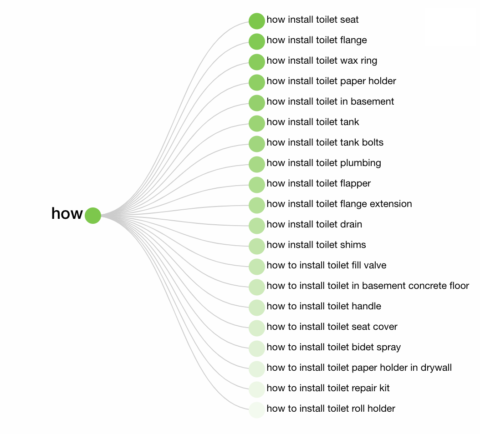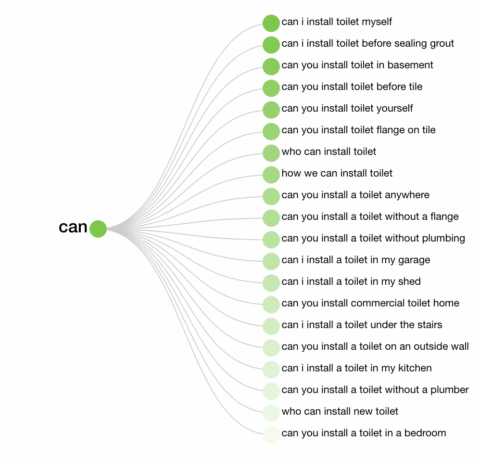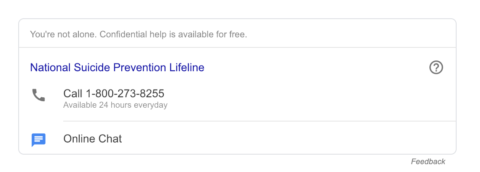You want to write content that is great for users and performs well in search engines in 2019.
But how do you do this?
You can start by looking back at the kinds of articles that performed well in 2018.
Certain types of content were shared a ton on social and throughout the marketing communities.
In fact, some of the best articles fell into more than one category.
But along with the overall conversation these article types create, they have great potential to get your site to the top of search results.
Make sure to consult this list whenever you’re writing articles for your own sites or your clients in 2019.
1. Strong Opinions
Google, laws, and consumers change constantly, which means marketing evolves constantly, too. Anyone with skin in the game probably has an opinion on something going on in our industry.
As such, articles with strong opinions perform well with readers.
You either read a piece and nod your head along in agreement with all the points the author makes. Or you hate-read, knowing you’ll share it with your friends who also think the author is off his or her rocker.
Either way, these types of articles drive a ton of likes, shares, comments, and overall traffic due to their inflammatory nature.
It helps when the title of the piece is intense, too:
- Google AMP Can Go to Hell
- Sometimes All You Need to E-A-T is a Sandwich
- Gary Vaynerchuk is wrong, wrong, wrong, wrong, wrong about media
These are a few of the articles I’ve seen shared across the internet, shared with me when I asked for people’s favorite articles of 2018, or that show up on top lists like the Trending lists on Sparktoro.
When you search the titles on Twitter, you see endless shares, and I imagine the conversation around the topics was plentiful and maybe even heated.
But sometimes you have to put yourself out there and be a leader in the conversation to drive traffic and build an audience.
What Does That Mean for Marketers?
If you feel strongly about something in your niche, take to the keyboard. Likely there are others out there who agree with you and will take the next step with your lead.
There will be dissenters, for sure. But if you have an opinion on something, the key is to back it up with evidence.
Write about your strongly held opinions.
Why Does This Content Perform Well in Search?
Strong opinions may not get a featured snippet (heck, they could if formatted correctly), but chances are the sheer number of links and attention they get elsewhere could mean they move up in rankings.
People with strong opinions on topics also generally know what they’re talking about. Authors who are passionate about something are typically experts in that area and have the topic authority to form a controversial opinion.
This means they probably have a whole host of other factors in their favor on their sites already, and their latest opinion post is just the icing on that website cake.
While the piece itself may not be a deciding factor in search, the kind of people who write pieces like that oftentimes already rank well for similar topics.
2. Original Data & Experiments
People curate data. Whether it’s to prove a point they believe in strongly, to show their boss they should invest in a strategy or solution, to inform their own next move, etc., we’re a data-driven society.
I mean, my husband researches data for purchases all the way down to the sounds keyboards make when you type.
It’s ingrained in us as a society to collect data. Ahrefs says that some of the top Google searches in 2018 were for things like weather, maps, translations, news, calculators, etc. These are all basic ways we collect data to make decisions.
In marketing, we have the benefit of having a ton of real number data points at our fingertips. Where should we invest our ad dollars? Is our CAC higher in Q4 than Q2? Why?
We pride ourselves on making decisions that are bound in the numbers – not in our “guts.”
When other people can test out marketing theories and either give you a baseline for trying it yourself or avoiding something disastrous completely, we find those marketing articles extremely useful:
- 2019 B2B Content Marketing Research: It Pays to Put Audience First
- Do Twitter Ads Really Work? A Surprising Experiment: 17.2 Million Views From a Single Twitter Thread
- Google AMP Case Study – Leads Dropped by 59% (How to Disable It)
Not only do pieces with original data get a lot of talk on social and shares in general, but they also get a ton of links. Andy Crestodina spoke about this at CTA Conf this year, saying that data projects he’d started a while back have become some of the top traffic drivers to his site.
What Does That Mean for Marketers?
It’s not easy to think of projects for original data just for the sake of collecting data. And, let’s be real, we don’t all have the time to do that.
My suggestion is to think of projects you’re already planning in the next quarter and figure out some hypotheses you could potentially test along with the regular execution of that project.
Crestodina suggested coming up with a hypothesis and hiring a virtual assistant to collect the data. Think of a survey relevant to your industry and send it to as many people as you can find.
Collect data, run experiments, and write about it so others can follow your lead.
Why Does This Content Perform Well in Search?
We’re in the age of Google, so anything we want is at our fingertips in seconds.
Need supporting data for a project plan, numbers to prove your theory is correct, or a jumping off point for your own venture? It’s all a search away.
Because people curate numbers and data, it will always perform well in marketing-focused SERPs.
3. Actionable Insights & How-Tos
Along with original data, marketers love actionable insights. Give us a good “how to” for something new or to make an old task easier, and we’ll go to town. We also love a good horror story to know what advice we should avoid.
I love the marketing and especially SEO communities because of how willing people are to share data, insights, successes, and failures.
I can go to Twitter and ask my SEO friends their opinions about a problem I’m having and get a couple different solutions to try instantly.
These articles are like that friend helping you out but on a larger scale. When an industry leader shows you how they’ve achieved repeatable results, it’s like a mentor is showing you something new to try for your next project.
Here are some articles from Sparktoro Trending and from people who sent me their favorite marketing articles of 2018:
- 37 SEO Horror Stories From The Frontlines
- How to Get More Keyword Metrics for Your Target Keywords
- How to rank for head terms
Think about the last time you saw a headline on Twitter with a “How-to” headline, and it was an exact fix to an issue you’ve been dealing with. Chances are you gasped and thought, “Finally!”
The same goes for search. We’re all looking for the best ways to achieve our professional goals in the quickest but most thorough way possible.
From simple things like, “How to set up Facebook Ads” to more complicated asks like, “How to recover from a Google penalty,” there’s nothing like finding the answers you need from someone else who’s figured it out.
What Does That Mean for Marketers?
Write down your processes. You’d be surprised at who would benefit from learning your way of doing things.
You probably think, “Yeah, it’s just XYZ.” But it’s almost guaranteed that you are doing something a little differently than someone else, and they’d love to pick up a tip or two from you.
If you’ve found a completely new way of doing things, it’s an even better reason to write a how-to.
Why Does This Content Perform Well in Search?
Everyone’s starting somewhere – and most of us look to search when we don’t know how to do something or are looking for better, more efficient ways to do it.
There’s a reason AnswerThePublic, the visual keyword research tool, has question branches telling us the many different ways people query search engines.
When you look at the search term “install toilet” the topic possibilities are endless:


More people than ever use YouTube, search results, and how-tos to do things themselves (my husband will try to do-it-himself before he hires any professional for a job – not always the best idea).
The next stage of these how-tos and actionable insights is probably how we can transfer the content over to voice search – as we’ll be asking our voice assistant to read them off to us.
4. Popular Authors in Industry
Certain people in the search and marketing industry always draw a crowd online. Kind of like the strongly held opinion pieces, readers either love or hate these people. But it’s hard to say they don’t make an impact.
These people typically have been producing the type of content on this list for a while now and have built up such a following that they get traffic solely because they’re mentioned, quoted, or named as an author.
Marketers look forward to hearing these big names tell all about predictions, trends, big data, and other insights that we “regular folks” don’t necessarily have the time to figure out or the access to.
- On SERP SEO – The Infuriating Reality of Search’s Future by Rand Fishkin
- Mary Meeker’s Internet Trends Report 2018
- Local Search Hacks You Probably Haven’t Seen Before by Darren Shaw
Not only do big names often have the best resources to research, pull data, and publish insightful pieces, but we trust that they’ve become big names by doing things correctly and well.
By emulating what they do or using their conclusions to form our own, we’re working toward their level of success.
What Does That Mean for Marketers?
If you’re not Oli Gardner or Marie Haynes, don’t fret. They didn’t start off that way either. Chances are they put out regular content with strong opinions, data, how-tos, etc. and gained their acclaim through their good work and client results.
People like you and I can just keep on keeping on, trying to do the same for our clients and our businesses.
One tip I’d have if you want to end up on a list of top marketers is to put yourself out there. Apply for speaking gigs. Join communities online (like #SEOChat!) and participate.
Why Does This Content Perform Well in Search?
Chances are if someone is a well-known marketer, they know how to work the internet. And they’ve been doing it for a while now.
Big names in SEO and digital marketing have been ranking for a while, have recognition within the industry, and can build domains based on their reputations and the sheer number of people actively searching for them by name.
5. Social Issues in the Industry
This is an up-and-coming category, in my opinion. Marketing and search are getting a bit meta, but it’s a trend I think is important.
Digital marketing, SEO, marketing consulting, marketing software, etc. all have people behind the scenes running the show. And the people side of things is just as important.
By writing about the personal of things out in the open, we give voice to and normalize issues that people in marketing may have kept quiet about and suffered through alone in the past.
Here are some of my favorite social issues articles that came out this year about burnout, harassment, and depression in our industry:
- Are Any of These 3 Things Draining Your Passion for SEO?
- Let’s Talk about Harassment at Events: How Can We Protect Our Audience?
- #SEOChat Opens Up On Depression Within The Search Industry
Just like we search for everything else, we’ll look for answers to the personal side of career and work issues.
As more marketers open up about how they deal with both the positive and negative sides of being a human in this industry, it will be become less taboo to bring up in a work-like setting and make us all better people and marketers.
What Does That Mean for Marketers?
Let’s break some barriers and be more open to supporting each other. Along with the business side of things, think about ways you can support other marketers, whether it’s those with whom you work or those out in the world.
Write about:
- Why it’s important to take a vacation.
- How you grew your business.
- How to fire maligning clients.
- How to hire the best people.
- When it’s time to quit a toxic job.
The more honest we are about real-life problems and successes in the industry, the more we can become resources for each other.
Why Does This Content Perform Well in Search?
While the climate around voicing issues and successes in the industry is changing, many people feel most comfortable asking the internet before they ask their friends.
Is this normal? Is it just me?
By providing the content that people are searching for, you’re opening up the conversation around those topics and matters.
Google is already working on providing support for people searching for sensitive issues – oftentimes offering a suicide hotline number as a featured result for certain searches.

By joining in the conversation – on both the good and bad sides – you’re starting conversations that people will search for and put to use.
Conclusion
Along with the main tenets of good SEO for anything we write that goes online, try framing your content under these pillars and see if your traffic and social impact improves in 2019.
Image Credits
All screenshots taken by author, January 2019





![AI Overviews: We Reverse-Engineered Them So You Don't Have To [+ What You Need To Do Next]](https://www.searchenginejournal.com/wp-content/uploads/2025/04/sidebar1x-455.png)